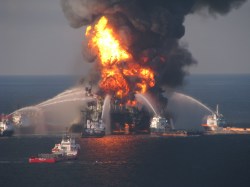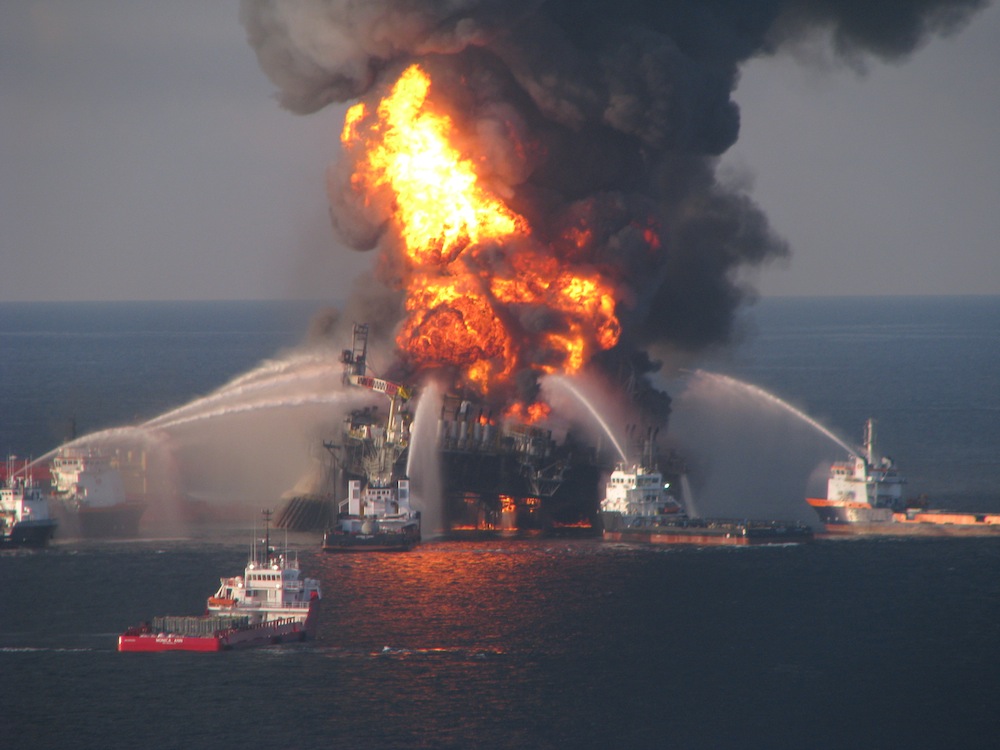
U.S. Coast GuardBP knew this could happen before it happened.
BP knew. BP didn’t care.
The company was aware that there was a “big risk” of an explosion at the Deepwater Horizon oil rig before that very disaster unfolded, an executive acknowledged Tuesday in court.
“There was a risk identified for a blowout,” Lamar McKay, who was president of BP America at the time of the 2010 explosion, said Tuesday during a civil trial that could see the company forced to fork over tens of billions of dollars in fines and damages to the U.S. government and victims of the oil spill. “The blowout was an identified risk, and it was a big risk, yes.”
That’s according to The New York Times. From the article:
After the April 2010 spill, internal BP documents showed that the company had struggled with a loss of “well control” in March, after several weeks of problems on the rig. And for months before that, it had been concerned about the well casing and the blowout preventer, which are considered critical pieces in the chain of events that led to the disaster.
On June 22, 2009, for example, BP engineers expressed concerns that the metal casing the company wanted to use might collapse under high pressure.
“This would certainly be a worst-case scenario,” Mark E. Hafle, a senior drilling engineer at BP, warned in an internal report. “However, I have seen it happen so know it can occur.”
Despite acknowledging that BP had known about the risks of an explosion at the drilling well before it happened, McKay stuck to a strategy that the company’s attorneys concocted to help convince the judge that BP was merely negligent, and not grossly negligent, in causing the accident: He said rig owner Transocean and contractor Halliburton shared in the blame. From The Guardian:
Robert Cunningham, an attorney for the plaintiffs, repeatedly pressed McKay to concede that BP bore ultimate responsibility for the blowout. McKay repeatedly insisted that managing the hazards was a “team effort.”
“I think that’s a shared responsibility, to manage the safety and the risk,” said McKay, now chief executive of BP’s upstream unit. “Sometimes contractors manage that risk. Sometimes we do. Most of the time it’s a team effort.”
The trial could get really interesting today with Mark Bly, BP’s head of safety at the time of the disaster, expected to testify.




